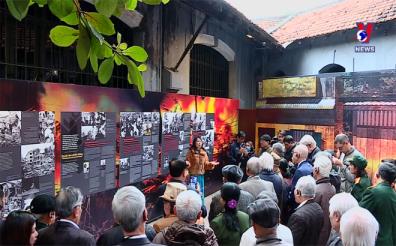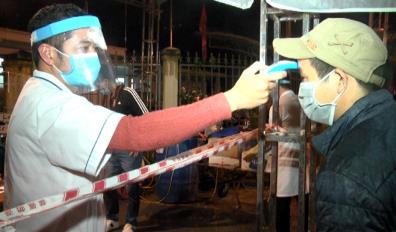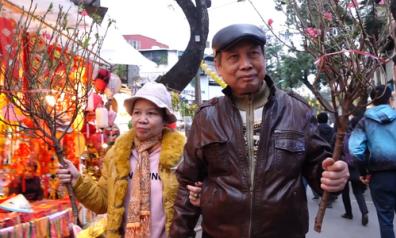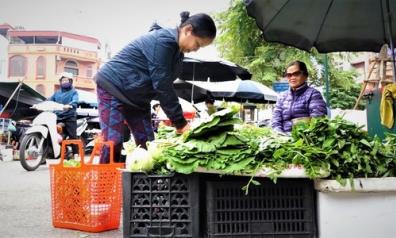YBO - The "Happy village" model was formed in De Xu Phinh commune, Mu Cang Chai district, to encourage residents to abide by the guidelines and policies of the Party and State as well as village regulations, while supporting each other in economic development, thus raising the happiness index for local people.
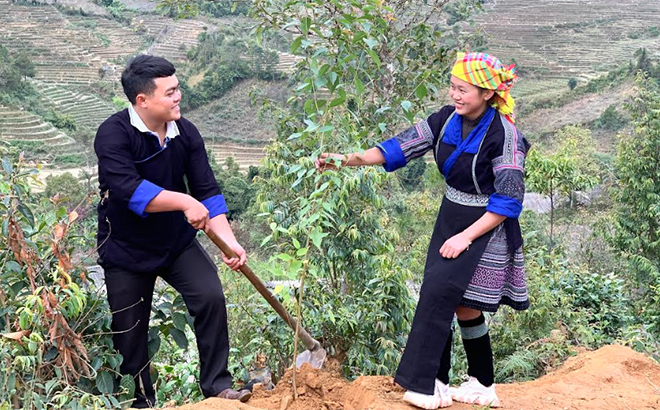
|
|
Giang A Do and Hang Thi Vang plant trees on the road to “Happy village”.
|
After learning about child and consanguineous marriage through communication campaigns conducted by local authorities, Giang A Do, 27 and Hang Thi Vang, 24, held a ceremony for marriage registration with the witness of local officials, their families, relatives and friends in a solemn and warm manner.
"In the past, for the Mong people, marriage registration was usually very simple. Now, with the encouragement of the Party Committee and local administration, we are well aware of child and consanguineous marriage. We are very happy as we had a meaningful registration ceremony," Vang said.
The establishment of the "Happy village" model has contributed to changing the way of life and thinking of officials, party members and people of De Xu Phinh village. The landscape is beautiful with clean road and tidy houses. People in the village live in harmony with nature and with neighbours, and their spiritual life is also improved, especially the enthusiastic spirit of young people and traditional cultural values are promoted.
Giang A Ly, chairman of the Fatherland Front Committee of De Xu Phinh commune said the village has set a target that all households will have access to clean and hygienic water by 2025. It will have from 5 to 10 effective economic models and 95 percent of households escape poverty in line with the new criteria.
The Resolution of the 19th provincial Party Congress, 2020 -2025 term, defines the goal of raising the People's Happiness Index of Yen Bai by 15 percent compared to 2020. The building of the "Happy village" of the Mu Cang Chai district’s Party Committee is a creative way, deriving from the locals’ demand.
In addition to raising the happiness index for local residents, the district also strives to double per capita income compared to 2020, and reduce the rate of poor households by an average 6.5 percent a year by 2025. Eighty percent of rural households will have hygienic latrines and all communes meet national standards in terms of health care. Two communes will be recognised as meeting the national standards for new rural areas while the remaining ones should have at least two villages meeting the standards.
The rate of workers undergone training will account for 47 percent. These factors will contribute to turn Mu Cang Chai into a tourist district, a safe and friendly destination which is imbued with national identity.
Mai Linh

In the 2024 - 2025 school year, Mu Cang Chai is focusing on advancing the "Digital School" initiative, implementing AI technology across educational activities, and applying a variety of teaching methods, including online, hybrid, and inter-level, inter-school teaching formats tailored to the region’s practical needs.

A recent survey was conducted with 1,854 young people from Yen Bai City, Nghia Lo Town, and the districts of Tran Yen, Van Yen, Luc Yen, and Van Chan, using both qualitative and quantitative research methods.

As a Hmong woman born and raised in the challenging land of Tram Tau, Specialist Doctor Thao Thi Nu was determined to pursue her education and realize her dream of providing healthcare to her community.

Recently, Yen Bai province has faced concerning reproductive health statistics, with the pregnancy rate among women aged 15-19 reaching 15.5% in Mu Cang Chai district and 9.6% in Van Chan district. Home births remain prevalent, with 63.1% occurring in Mu Cang Chai and 13.5% in Van Chan.







